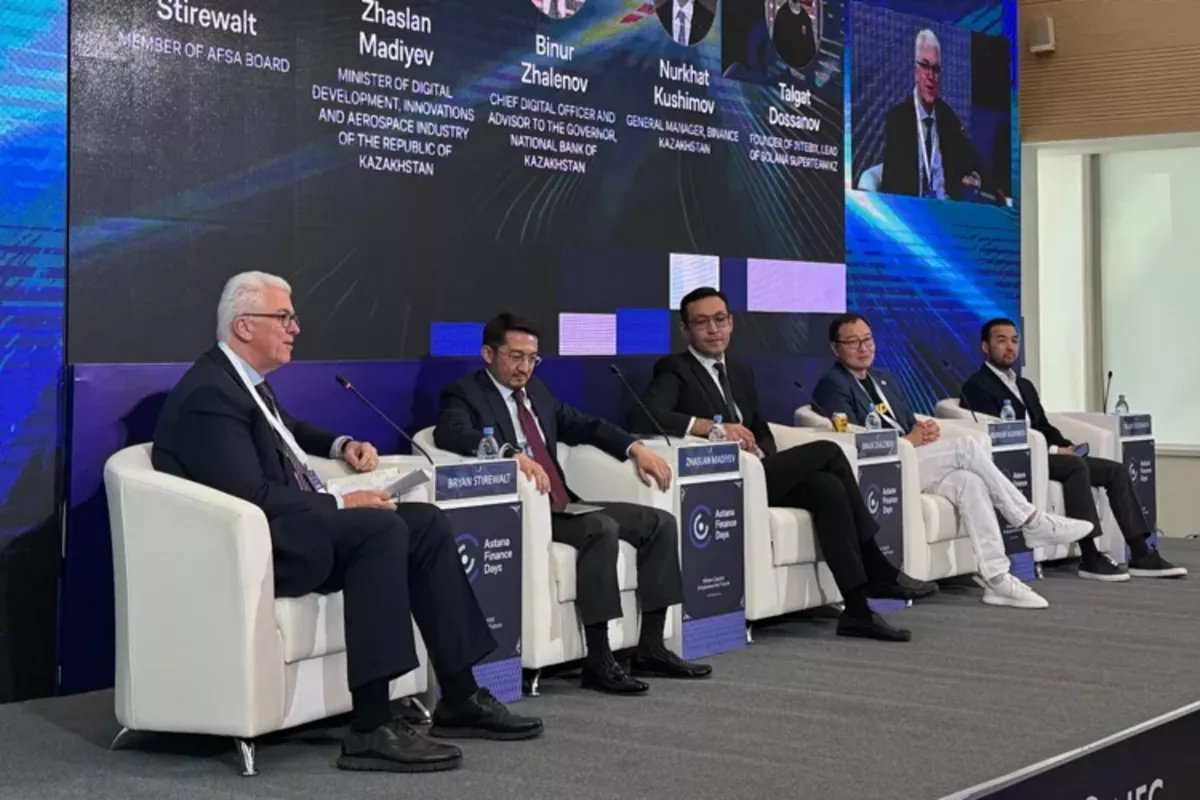
photo: Kazinform
At the Astana Finance Days conference, the panel discussion “CryptoCity: From Vision to Value - Developing a Blockchain-Enabled Economy” brought together top regulators, industry leaders, and innovators to explore Kazakhstan’s growing role in shaping a blockchain-powered digital economy.
Moderated by Bryan Stirewalt, Board Member of the Astana Financial Services Authority (AFSA), the session opened with a call for flexibility in navigating rapid technological change, The Caspian Post informs via Kazakh media.
“It’s not the strongest or the smartest who survive, but those most adaptable to change,” Stirewalt noted. “That’s precisely the mindset needed as we build a digital economy.”
Minister of Digital Development, Innovations and Aerospace Industry, Zhaslan Madiyev, emphasized Kazakhstan’s commitment to remaining a leader in crypto adoption.
“Kazakhstan must stay at the forefront of this transformative technology,” he stated.
He stressed the importance of drawing crypto activity into the regulated sphere without stifling innovation.
“We must avoid over-regulating the market,” he warned.
Madiyev clarified that the “CryptoCity” vision is not confined to a geographical location, but rather represents an enabling digital ecosystem that supports everyday applications-from crypto payments and ATMs to tokenized assets and blockchain-based GovTech solutions.
Binur Zhalenov, Chief Digital Officer and Advisor to the Governor of the National Bank of Kazakhstan, highlighted significant strides made in blockchain-backed finance, including the rollout of the country’s Central Bank Digital Currency (CBDC).
“There are already 270 billion digital tenge circulating within the economy,” he reported.
In a major policy shift, Zhalenov announced plans to lift the ban on crypto circulation in mainland Kazakhstan.
“We’re introducing a licensing framework for OTC crypto platforms and exchanges,” he said.
He also pointed to the growing relevance of sovereign-backed stablecoins:
“Stablecoins are becoming a crucial component of monetary sovereignty in the emerging crypto economy.”
Nurkat Kushimov, General Manager of Binance Kazakhstan, echoed the sentiment that “CryptoCity” is not a place but a broader economic framework.
“It’s about developing an entire ecosystem and infrastructure,” he said.
Kushimov urged regulators and industry stakeholders to act swiftly:
“We need to move quickly and decisively-this is a global race, and we’re facing competition from other jurisdictions.”
Talgat Dossanov, founder of Intebix and head of Solana Superteam Kazakhstan, emphasized the country’s potential to lead in digital asset creation-not just consumption.
“Kazakhstan has a unique opportunity to become a builder of digital assets,” he said.
He noted progress in Web3 education initiatives:
“Currently, 650 participants are enrolled in our Web3 education program. So far, 140 have completed the first module and earned certification.”
Speakers across the panel agreed that Kazakhstan’s success in building a blockchain-driven economy will depend on regulatory liberalization, interoperable payment systems, sandbox environments for innovation, and sustained investment in human capital.
In a related session, representatives from the central banks of Hungary and Türkiye noted the accelerating role of artificial intelligence in reshaping global finance-underscoring the need for adaptive policy and tech-driven infrastructure.
Share on social media


